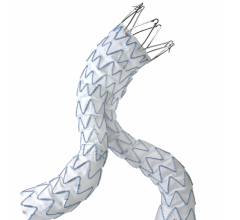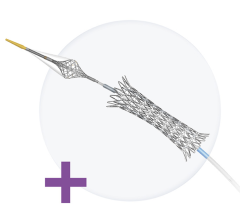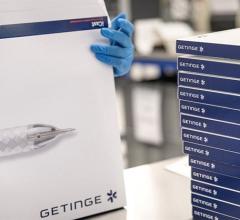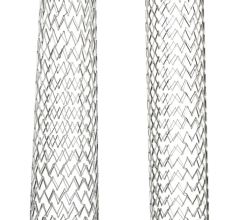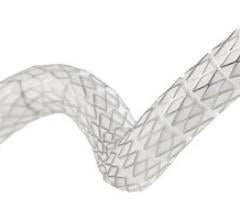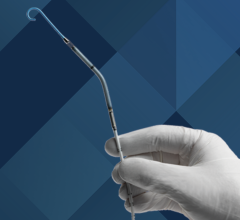March 31, 2008 - Although drug-eluting stents have become widely used for the treatment of stable coronary artery disease, many cardiologists choose bare-metal stents for patients with heart attack, or myocardial infarction (MI), citing conflicting data about the safety and effectiveness of drug-eluting stents in this patient group. Such concerns are being challenged by an analysis of a large Massachusetts database.
The analysis showed a significantly lower risk of arterial renarrowing, or restenosis, among heart attack patients who were treated with drug-eluting stents, with no increase in mortality, when compared to those treated with bare-metal stents.
The study is being reported today in a Late-Breaking Clinical Trials session at the SCAI Annual Scientific Sessions in Partnership with ACC i2 Summit (SCAI-ACCi2) in Chicago. SCAI-ACCi2 is a scientific meeting for practicing cardiovascular interventionalists sponsored by the Society for Cardiovascular Angiography and Interventions (SCAI) in partnership with the American College of Cardiology (ACC).
�This study confirms that the same benefits that drug-eluting stents offer other patients in preventing restenosis of the coronary arteries are still there for patients with MI, and there doesn�t appear to be any trade-off in increased risk of repeat MI or death,� said Laura Mauri, MD, MSC, an interventional cardiologist at Brigham and Women�s Hospital, an assistant professor of medicine at Harvard Medical School, and chief scientific officer at the Harvard Clinical Research Institute, all in Boston.
Cardiologists have had to decide which type of stent to use in heart attack patients based on small randomized trials that didn�t include long-term follow-up and reported conflicting results. There have also been concerns that, because heart attack patients are already prone to forming blood clots in the coronary arteries, they might be at high risk for stent thrombosis, or sudden clotting inside the stent, particularly a drug-eluting stent.
To evaluate the long-term safety and effectiveness of drug-eluting stents, Dr. Mauri and her colleagues analyzed data from 7,216 patients who underwent stenting for acute MI in Massachusetts, where hospitals are required to submit data on all coronary interventions to a state database. Of these, 4,016 patients were treated with a drug-eluting stent and 3,200 were treated with a bare-metal stent. To adjust for differences in baseline risk, patients in the two groups were matched on up to 63 variables.
Researchers found that the two-year, risk-adjusted rate of revascularization�or the need for a repeat procedure to open the coronary arteries as a result of renarrowing, or restenosis�was significantly lower in patients treated with drug-eluting stents when compared with bare-metal stents (15.5 percent vs. 20.8 percent; p
�These findings are reassuring,� Dr. Mauri said. �Although neither bare-metal stents nor drug-eluting stents were originally approved in the setting of acute myocardial infarction, it is probably the most important condition we treat with stents. I would feel comfortable considering drug-eluting stents on the basis of these results--with the caveats that treated patients must be able to take antiplatelet therapy and that we definitely want to see even longer-term follow-up.�
The researchers plan to continue follow-up in Massachusetts and re-examine the findings when more data are available.
Dr. Mauri will present the results of this study on Sunday, March 30 at 9:15 a.m. CDT in the Grand Ballroom, S100.
For more information: www.acc08.org


 November 24, 2025
November 24, 2025 
